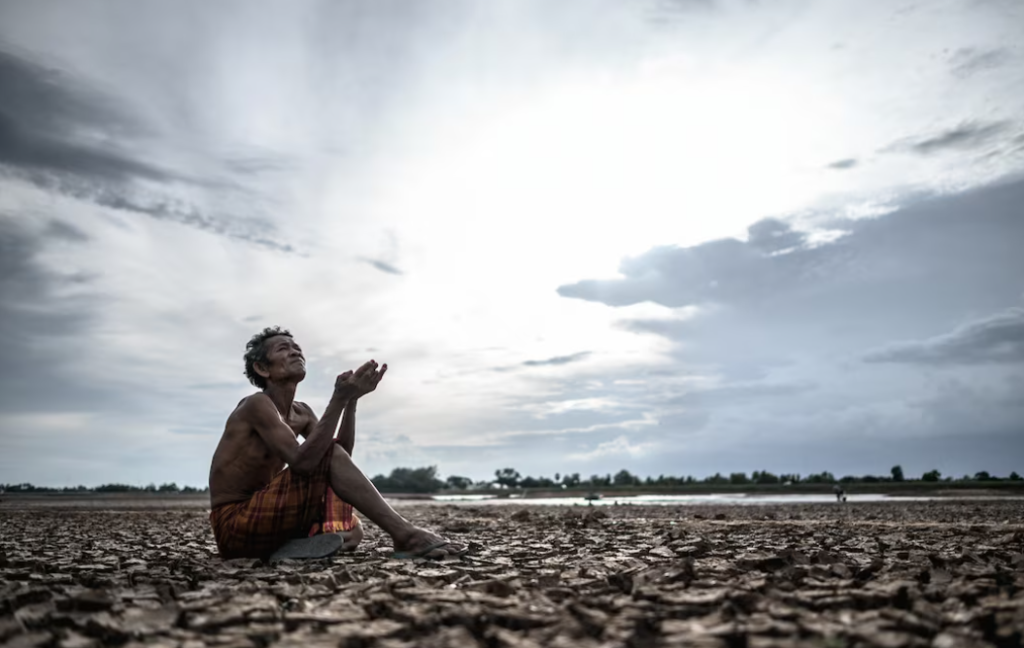Physical Address
23,24,25 & 26, 2nd Floor, Software Technology Park India, Opp: Garware Stadium,MIDC, Chikalthana, Aurangabad, Maharashtra – 431001 India
Physical Address
23,24,25 & 26, 2nd Floor, Software Technology Park India, Opp: Garware Stadium,MIDC, Chikalthana, Aurangabad, Maharashtra – 431001 India

By Aayushi Sharma
Michael Shellenberger, politician, author and founder of Environmental Progress, in an article called global danger of climate change a ‘cry wolf.’ Forbes censored this article, but it was later published on Shellenberger’s own website. In his article, he made several misleading claims about the environment and climate change.
In his article, Shellenberger mentions that he would like to formally apologize on behalf of all environmentalists for the climate alarm spread over the past 30 years. He says, there is a change in the climate. Simply put, nothing will end the world. According to him, climate change is not even the most significant environmental issue we have.
Twitter’s censored post:
Here are certain misleading claims he has made in the article, that we will debunk:
Claim 1: We produce 25 percent more food than we need, and food surpluses will continue to rise as the world gets hotter
Fact: The world is facing a global decline in crop yield. Climate-related impacts are already reducing crop yields in some parts of the world.
What we found?
The UN Global Food and Agricultural Organization estimates that one in seven people worldwide experiences chronic hunger and malnutrition. One dollar or less a day is the daily budget for one-fourth of Brazilians, one-third of the Nigerian population, and one-third of the Indian population. In the globe today, malnutrition affects about 800 million people.
According to the International Food and Agricultural Organization (FAO), 200 million children under the age of five experience regular hunger, and every third kid worldwide dies from starvation. Leading the list of child mortality from starvation are Asia and Africa. The stability of whole food systems may be at risk under climate change because of short-term variability in supply.
The IPCC AR5 states that, “Climate-related impacts are already reducing crop yields in some parts of the world, a trend that is projected to continue as temperatures rise further. Crops affected include staples such as wheat, maize and rice. Climate change is projected to increase price volatility for agricultural commodities, and reduce food quality.”
Moreover, a study by NASA says that climate change may reduce the production of Maize by 2030 by 24%. National Innovations in Climate Resilient Agriculture (NICRA) studied the impact of climate change on Indian agriculture. In their study, they found that rainfed rice yields in India are projected to reduce marginally (<2.5%) in 2050 and 2080 and irrigated rice yields by 7% in 2050 and 10% in 2080 scenarios. Further, wheat yield projected to reduce by 6-25% in 2100 and maize yields by 18-23%.

Global Hunger Report 2022 states that “Climate change, and the COVID-19 pandemic had already left millions exposed to food price shocks and vulnerable to further crises.”
Regions affected by food shortage:
South Asia, where famine is at its worst, and Africa, south of the Sahara, both suffer from severe hunger (where hunger is the second highest). The highest rates of child wasting and stunting are found in South Asia. The frequency of undernourishment and the rate of child mortality are higher in Africa, South of the Sahara, than in any other part of the world. One of the worst droughts in 40 years is currently affecting parts of East Africa and endangering the lives of millions of people. There are unsettling indications that the fight against hunger is reversing in West Asia and North Africa, regions with moderate levels of hunger. Throughout Europe and Central Asia, East, and Southeast Asia, and Latin America and the Caribbean, there are few people who experience hunger.
GHI reports from the past and the present reveal these enduring vulnerabilities and it demonstrates what steps can be taken to meet urgent humanitarian needs and launch food system reform. The international community must take proactive actions to really fulfill its international commitments and pledges, scaling them up and directing them towards emergency measures rather than acting receptively. Policies and initiatives that address structural barriers to food and nutrition security must get political support and finance.
Claim 2: The Amazon is not “the lungs of the world”
Fact: The Amazon, referred to as the lungs of the world, produces 20% of global oxygen and supports 2.5 million species.
What we found?
The Amazon is largely covered in rainforest, which produces the highest annual rainfall in meters. In addition to holding a huge carbon deposit, it also has 20% of the world’s freshwater. Even though the Amazon’s largest and most biodiverse region is a rainforest, it is not the only feature of the region. Moreover, there are the Cerrado and the Savanna. The largest agricultural development Brazil has seen in a long time is taking place here.
There should be a decrease in the deforestation of the Amazon, which leading to the decrease in loss of biodiversity.

One of the most biodiverse ecosystems in the world can be found in the Amazon. In addition to saving innumerable species of both known and unknown organisms, protecting and conserving the Amazon helps combat climate change. Around 2 billion tonnes of carbon are stored in the Amazon, and if the forest were to die out, a significant amount of that carbon would be released into the atmosphere. Weakened efforts to combat deforestation, particularly in Brazil, pose a growing threat to the biodiversity of the Amazon. One of the many detrimental effects of Amazon deforestation is the loss of animal and plant species, many of which science does not yet fully understand. Indigenous cultures, riverfront, urban populations, and even the health of the planet are all impacted by deforestation.
Amazon forests have a significant role in controlling Earth’s climate. Forest loss would lead to an increase in extreme weather events and a rise in regional and global temperatures.
If you have any queries or come across suspicious content related to climate change or the environment and want us to verify them for you, do share them with us on Climate Buddy, our WhatsApp tipline number: +917045366366
References: